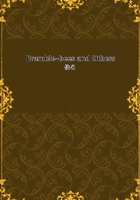
第73章 THE RESIN-BEES.(8)
Franklin left us a maxim which is much to the point here. He said that a good workman should be able to plane with a saw and to saw with a plane. The insect is too good a workman not to follow the advice of the sage of Boston. Its industry abounds in instances where the plane takes the place of the saw, or the saw of the plane; its dexterity makes good the inadequacy of the implement. To go no further, have we not just seen different artisans collecting and using pitch, some with spoons, others with rakes, others again with pincers? Therefore, with such equipment as it possesses, the insect would be capable of abandoning cotton for leaves, leaves for resin, resin for mortar, if some predisposition of talent did not make it keep to its speciality.
These few lines, which are the outcome not of a heedless pen but of mature reflection, will set people talking of hateful paradoxes. We will let them talk and we will submit the following proposition to our adversaries: take an entomologist of the highest merit, a Latreille (Pierre Andre Latreille (1762-1833), one of the founders of modern entomological science.--Translator's Note.), for instance, versed in all the details of the structure of insects but utterly unacquainted with their habits. He knows the dead insect better than anybody, but he has never occupied himself with the living insect. As a classifier, he is beyond compare; and that is all. We ask him to examine a Bee, the first that comes to hand, and to name her trade from her tools.
Come, be honest: could he? Who would dare put him to such a test? Has personal experience not fully convinced us that the mere examination of the insect can tell us nothing about its particular industry? The baskets on its legs and the brush on its abdomen will certainly inform us that it collects honey and pollen; but its special art will remain an utter secret, notwithstanding all the scrutiny of the microscope. In our own industries, the plane denotes the joiner, the trowel the mason, the scissors the tailor, the needle the seamstress.
Are things the same in animal industry? Just show us, if you please, the trowel that is a certain sign of the mason-insect, the chisel that is a positive characteristic of the carpenter-insect, the iron that is an authentic mark of the pinking-insect; and as you show them, say:
'This one cuts leaves; that one bores wood; that other mixes cement.'
And so on, specifying the trade from the tool.
You cannot do it, no one can; the worker's speciality remains an impenetrable secret until direct observation intervenes. Does not this incapacity, even of the most expert, proclaim loudly that animal industry, in its infinite variety, is due to other causes besides the possession of tools? Certainly, each of those specialists requires implements; but they are rough and ready implements, good for all sorts of purposes, like the tool of Franklin's workman. The same notched mandible that reaps cotton, cuts leaves and moulds pitch also kneads mud, scrapes decayed wood and mixes mortar; the same tarsus that manufactures cotton and disks cut out of leaves is no less clever at the art of making earthen partitions, clay turrets and gravel mosaics.
What then is the reason of these thousand industries? In the light of facts, I can see but one: imagination governing matter. A primordial inspiration, a talent antecedent to the actual form, directs the tool instead of being subordinate to it. The instrument does not determine the manner of industry; the tool does not make the workman. At the beginning there is an object, a plan, in view of which the animal acts, unconsciously. Have we eyes to see with, or do we see because we have eyes? Does the function create the organ, or the organ the function? Of the two alternatives, the insect proclaims the first. It says:
'My industry is not imposed upon me by the implement which I possess;what I do is to use the implement, such as it is, for the talent with which I am gifted.'
It says to us, in its own way:
'The function has determined the organ; vision is the reason of the eye.'
In short, it repeats to us Virgil's profound reflection:
'Mens agitat molem'; 'Mind moves matter.'